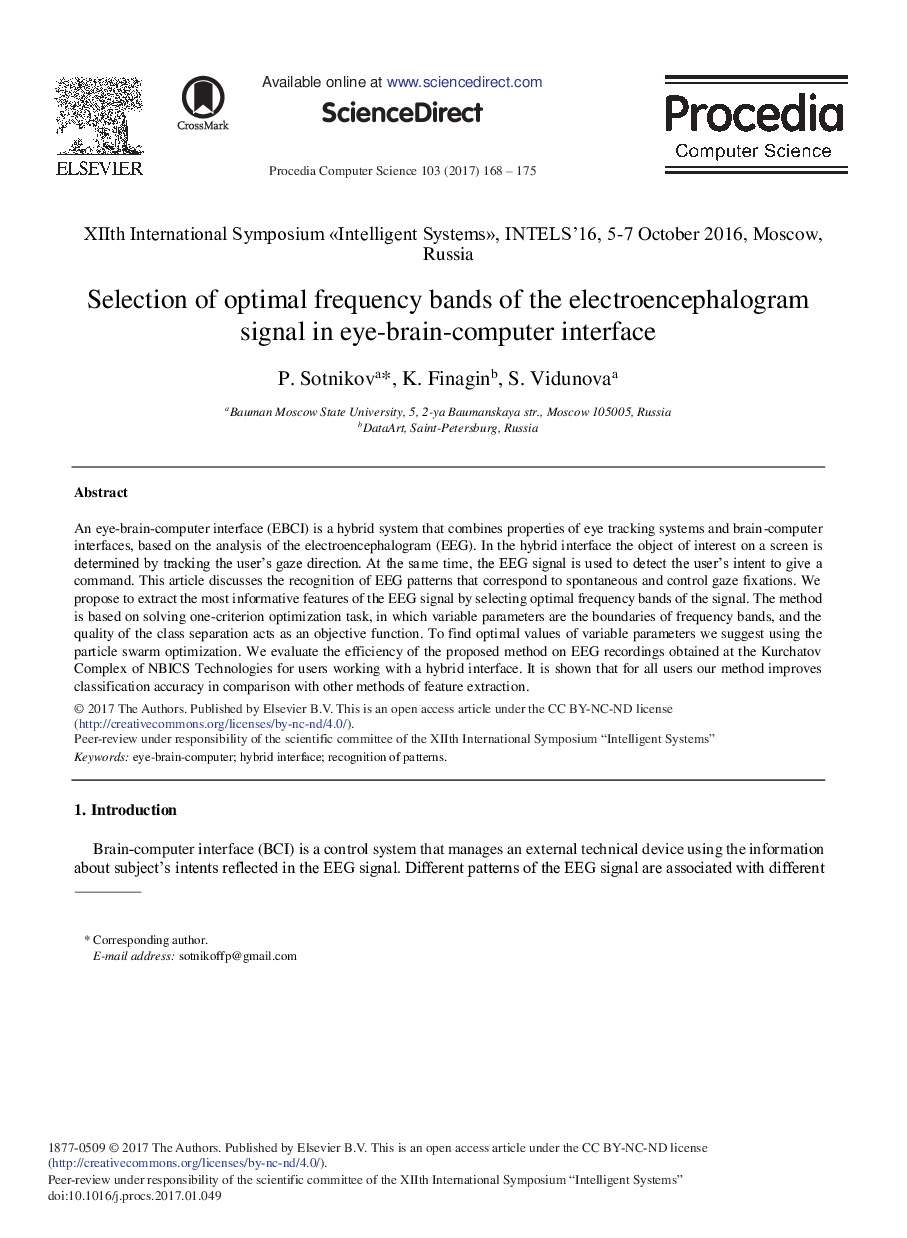| Article ID | Journal | Published Year | Pages | File Type |
|---|---|---|---|---|
| 4961453 | Procedia Computer Science | 2017 | 8 Pages |
An eye-brain-computer interface (EBCI) is a hybrid system that combines properties of eye tracking systems and brain-computer interfaces, based on the analysis of the electroencephalogram (EEG). In the hybrid interface the object of interest on a screen is determined by tracking the user's gaze direction. At the same time, the EEG signal is used to detect the user's intent to give a command. This article discusses the recognition of EEG patterns that correspond to spontaneous and control gaze fixations. We propose to extract the most informative features of the EEG signal by selecting optimal frequency bands of the signal. The method is based on solving one-criterion optimization task, in which variable parameters are the boundaries of frequency bands, and the quality of the class separation acts as an objective function. To find optimal values of variable parameters we suggest using the particle swarm optimization. We evaluate the efficiency of the proposed method on EEG recordings obtained at the Kurchatov Complex of NBICS Technologies for users working with a hybrid interface. It is shown that for all users our method improves classification accuracy in comparison with other methods of feature extraction.
